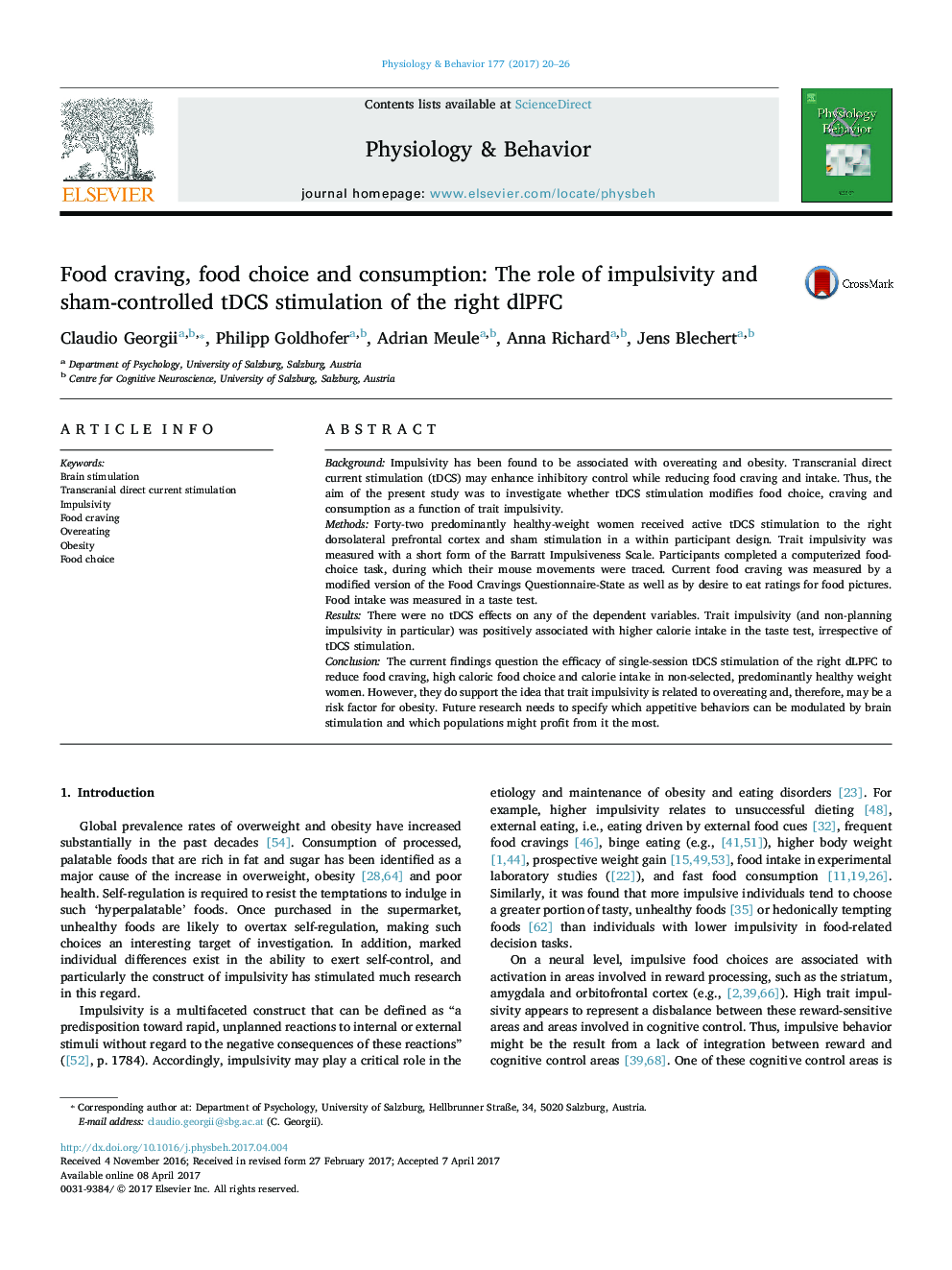| Article ID | Journal | Published Year | Pages | File Type |
|---|---|---|---|---|
| 5593719 | Physiology & Behavior | 2017 | 7 Pages |
Abstract
The current findings question the efficacy of single-session tDCS stimulation of the right dLPFC to reduce food craving, high caloric food choice and calorie intake in non-selected, predominantly healthy weight women. However, they do support the idea that trait impulsivity is related to overeating and, therefore, may be a risk factor for obesity. Future research needs to specify which appetitive behaviors can be modulated by brain stimulation and which populations might profit from it the most.
Keywords
Related Topics
Life Sciences
Biochemistry, Genetics and Molecular Biology
Physiology
Authors
Claudio Georgii, Philipp Goldhofer, Adrian Meule, Anna Richard, Jens Blechert,
